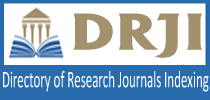- Focus and Scope
- Section Policies
- Peer Review Process
- Publication Frequency
- Open Access Policy
- Plagiarism Check
- Journal Archiving
Focus and Scope
Tanwir Arabiyyah: Arabic As Foreign Language Journal embodies research articles including: • Arabic Language Learning Technology • Arabic Language Learning Curriculum • Arabic Teachers • Students Learning Arabic • Arabic Language Learning Method • Arabic Learning Materials • Arabic Learning Media • Evaluation of Arabic Language Learning • Institutions and Environment
Section Policies
Artikel
Peer Review Process
Tanwir Arabiyyah: Arabic As Foreign Language Journal is a double-blind peer-reviewed journal. Submissions which meet the requirements of the journal are reviewed by two experienced reviewers in the field of Arabic Language and Education. The review process is expected to take two (2) to three (4) weeks but it may take longer depending on the number of papers currently being reviewed. The following are the four main steps of the review process. 1. The completed manuscript uploaded by the author (s) to the Tanwir Arabiyyah: Arabic As Foreign Language Journal website is then assigned by the Chief Editor to see the editorial process. 2. The editor will invite reviewers to give proper assessment and judgement of the submitted manuscript. 3. The result of the review will be communicated to the editor for onward transmission to the author(s). 4. If required, the author(s) will revise the manuscript in light of the reviewers’ comments and suggestions and resubmit the manuscript within two to six weeks. 5. When the manuscript is finally accepted for publication, the editor will schedule the publication and inform the author(s) of the particular number and volume of the journal in which the article will be published.
Publication Frequency
Tanwir Arabiyyah: Arabic As Foreign Language Journal published twice a year. Each issue number amounts to a minimum of five the title.
Open Access Policy
This journal provides immediate open access to its content on the principle that making research freely available to the public supports a greater global exchange of knowledge. Benefits of open access for the author, include: • Free access for all users worldwide • Authors retain copyright to their work • Increased visibility and readership • Rapid publication • No spatial constraints
Plagiarism Check
Tanwir Arabiyyah Editorial Board will ensure that every published article will not exceed 30% similarity Score. Plagiarism screening will be conducted by Tanwir ArabiyyahEditorial Board using Turnitin
Journal Archiving
This journal utilizes the OneSearch: Indonesia National Library to create a distributed archiving system among participating libraries and permits those libraries to create permanent archives of the journal for purposes of preservation and restoration.













